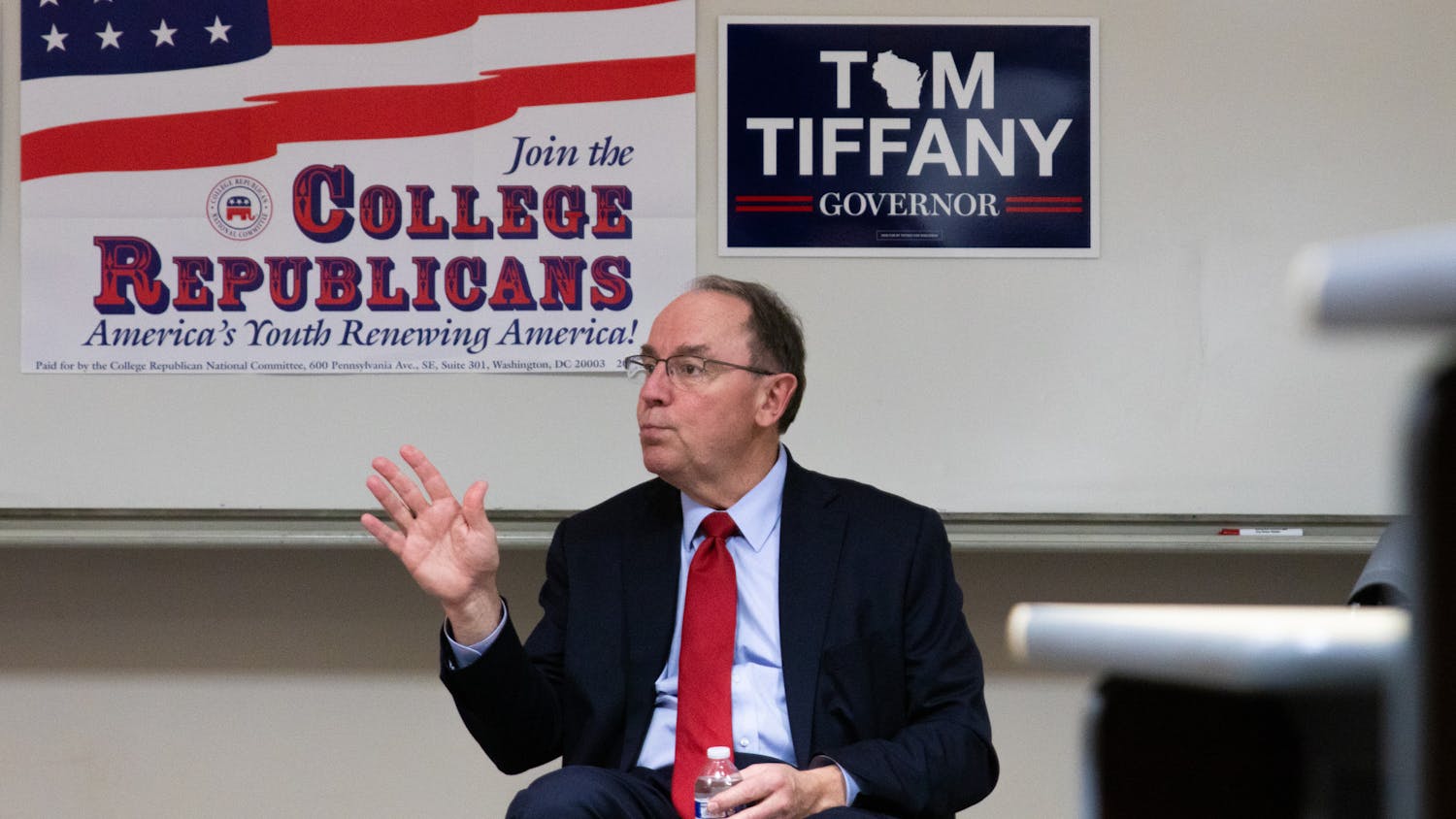On Oct. 23, Reuters, the news wire service, put out news briefs on three different national political polls, all measuring the presidential race.
A poll released by Time Magazine had President Bush with a five-point lead over Democratic presidential candidate John Kerry.
A Reuters poll showed Bush with a two-point lead.
And according to Newsweek's poll, the race was a dead heat.
For anyone who has followed the presidential election, polls seem to be everywhere. Every newspaper, news magazine, television news program and Internet blogger focuses on the latest poll results as if they were definitive indicators of who will win the election.
But there is a tremendous amount of fluctuation from poll to poll. Voters appear to change their minds constantly and results can differ depending upon who is being questioned, the phrasing of the questions and the structure of the polls themselves.
While there is no question they are at least somewhat credible in determining how people feel about the candidates and the issues, they also change quite often.
Poll results should not be totally ignored, but the results of one poll do not necessarily accurately reflect the overall sentiment of the electorate.
Same week, different results
At the end of April, the Badger Poll, conducted by the UW Survey Center, showed a 12-point advantage for Bush in Wisconsin. A poll conducted only a week earlier by St. Norbert College showed Kerry leading by six points.
UW-Madison political science Professor Charles Franklin said such a difference between polls is fairly common.
\That just reflects how much real variation there is from poll to poll,"" he said.
An individual poll, then, does not show what the electorate is truly thinking on any given issue.
""It's interesting that there is so much attention paid to polls, but my guess is that polls are the least accurate way of gauging the election,"" said J. Scott Armstrong, a marketing professor at the Wharton Business School at the University of Pennsylvania.
Franklin said polls can be good indicators of the outcome of any given election, but can only give predictions within a substantial margin of error. The problem, he explained, is that too much weight is given to any particular poll.
""Pollsters and reporting on polls ... have given [those following the news] the impression that every one-percent change in a poll means something,"" Franklin explained. ""Variations within that margin [of error] really are meaningless.""
Despite the questionable validity of individual polls, they do have some predictive value. The average of all polls is especially a good indicator of where the electorate stands. In 2000, for example, polls in Florida, where Bush won by less than one-one hundredth of a percentage point, varied greatly. However, the average of all the polls showed a virtual dead heat.
""Let newspapers not just report today's result, but print a picture of all the polls and show where the trend line lies,"" Franklin said. ""I think that's the biggest favor newspapers can do for readers.""
In addition, polls are very good at showing overall trends. Most of the polls taken after the first presidential debate, which Kerry was said to have decisively won, showed voters moving toward Kerry.
While they varied in exactly how much support he had, it was fairly clear that Kerry's performance in the debate had helped him.
If you look at poll variation and at what is happening to all polls, according to Franklin, then it is possible to predict fairly accurately.
Polls are not the only way of measuring how voters feel. There are several other methods used to try and gauge how people will vote on Election Day.
One alternative way of predicting elections is the Iowa Electronics Market. Created by professors at the University of Iowa's Tippie College of Business, one market has investors buy shares in who they think will win the election.
The price for shares in each candidate corresponds to the chance each candidate has to win, and those who invest in the winner get paid off.
Because investors must use real money to invest in the market, it typically corresponds with whom investors think will win, not necessarily whom they want to win.
""The market is looking at a future event,"" said George McRory, a spokesperson for the Iowa Electronic Market. ""What voters are trying to do is buy low and sell high.""
This fact, he continued, means personal preferences toward a candidate do not usually factor in to a person's decision to buy a share.
The markets have historically been more accurate than the polls in predicting election outcome. Nathan D. Grawe, a professor of economics at Carleton College, has done significant work with the Iowa Electronic Market. He thinks since the markets are ""predicting a probabilistic statement,"" their participants use a number of factors to predict the election outcome.
However, while the Iowa Electronic Market is good at predicting outcomes, they do not show why voters vote the way they do.
""The Iowa Market is essentially ... a prediction of where the race is going to end up,"" Franklin said. ""It is completely unable to say why those changes are taking place.""
The polls and the Iowa Markets both have their shortcomings, even if they are valuable in some respects. So how can one predict the outcome of any election?
The simple answer is that it is not entirely possible. While polls and other measuring devices show trends, they cannot show with any sort of certainty what will actually happen.
In order to truly know what will happen in the election, as Grawe said, ""We'll just have to wait and see.""
-Knowledge@Worton
contributed to this report





